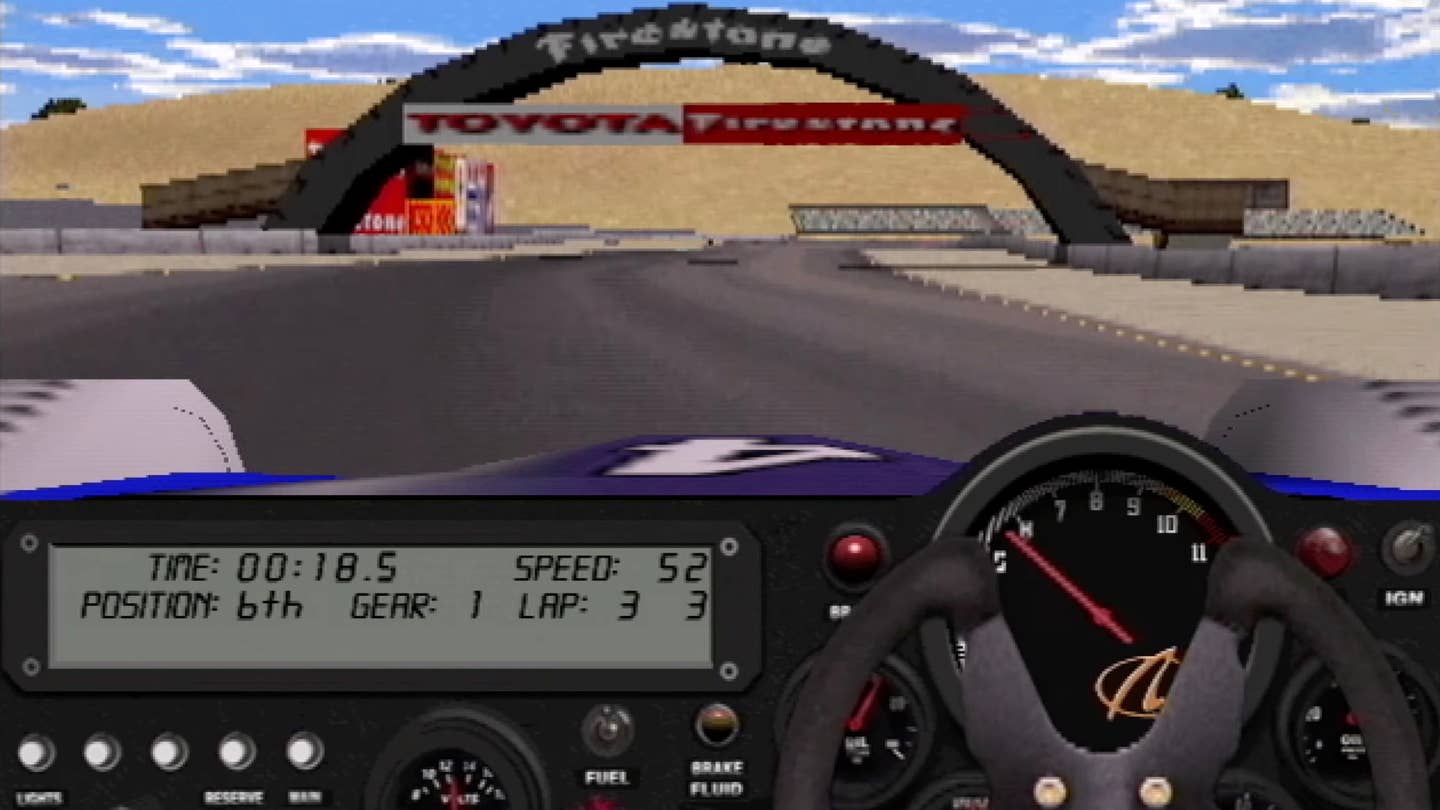IMSA World Championship Racing was a generation beyond anything on PlayStation. But then, the system it was built for was shelved.

Not unlike cars, movies, or anything else, sometimes video games in development get canceled. It’s an unfortunate truth of the industry that certainly happens far more often than the public ever knows about. But IMSA World Championship Racing here is a special case. This game, which utilized a physics engine derived from Atari’s landmark driving sim, Hard Drivin’, was intended for release sometime in 1997 for the Panasonic M2. It was almost completed before the M2 itself was shelved—as a game console, anyway. But thanks to preservationists like Video Game Esoterica on YouTube, we can still witness what never was. And by the standard of racing games on consoles and even PCs to an extent, it would’ve been nothing less than groundbreaking.
Video Game Esoterica, who I’ll abbreviate to VGE here for the sake of brevity, takes us through IMSA’s four tracks in this 10-minute video and showcases the title’s impressive gameplay. Some context: By mid-1997, the Sega Saturn and Sony PlayStation had been out for about two years, and the Nintendo 64 for about nine months, give or take. Gran Turismo was still a year away in the U.S., but would drop just before Christmas in Japan. And even Gran Turismo, revolutionary though it was and brimming with vastly more content, didn’t look or play anywhere near as smoothly as we observe IMSA World Championship Racing here.
The M2 was like the missing link between those aforementioned consoles and the Sega Dreamcast, which didn’t arrive until the end of 1999 in North America. As a result, IMSA’s car and environment models as well as its texture work are more intricate and detailed than anything on PlayStation, but the game also manages to run at a seemingly unwavering 30 frames per second, and double the resolution that any console at the time could accomplish. To play anything prettier, you had to go to an arcade.
Couple that presentation with the physics, which VGE notes are incomplete but still obviously more authentic than anything this side of Papyrus’ IndyCar Racing or comparable PC-only affairs, and you have a truly cutting-edge motorsport sim for the late ’90s. IMSA even forced you to bring your tires up to temperature at the start of a session for maximum grip.
Of course, racing nerds that we are here at The Drive, I have to point out how cool it is to see an IMSA-focused title from this time period. American sports-car racing hasn’t been particularly well-represented in the medium over the years, and truthfully, IMSA World Championship Racing doesn’t go as far as it could’ve. There are only four tracks on offer here, and it seems that’s all the developers ever planned. One is a fictional tri-oval similar in shape to Daytona, while another is heavily inspired by, but not entirely faithful to the New Orleans street circuit on which IMSA held its Grand Prix du Mardi Gras in 1991, 1992, and 1995. The remaining two locales are Laguna Seca, which was no stranger to the IMSA schedule; and Japan’s Suzuka Circuit, which definitely would’ve been.
We also get a peek at the car showroom loading screen in this footage, which would’ve had anyone reading Next Generation magazine at the time positively drooling on the pages. There’s a Ferrari 333 SP and what looks to be a Kudzu DLM, a Mazda rotary-powered prototype, under panning multicolored lights to really show off the M2’s dynamic lighting capabilities, as well as the detail of those models—again, all far beyond anything seen on consoles and most PCs of the day. And if you don’t perform well enough in the main event, the game hits you with a Need for Speed or Road Rash-type filmed full-motion video sequence showing a frustrated driver, while chiding you to “Drive Faster!” in grizzled type.
So, if the M2 nor IMSA World Championship Racing never released to the public, how is VGE here playing it? While Panasonic failed to deliver the system as a gaming console, it did eventually sell the hardware in limited numbers as a “multimedia player” for business and pharmaceutical applications. These devices—the Panasonic FZ-21S and FZ-35S—incorporated the same chipset that the M2 would have as a dedicated gaming machine, and so software like IMSA works on them. As for the game itself, this near-final build actually leaked back in 2010 with the permission of one of the original developers. It just took a little while before we could get a really clean look at it. Oh, what could’ve been.
Wanna talk racing games? Hit me up at adam.ismail@thedrive.com



